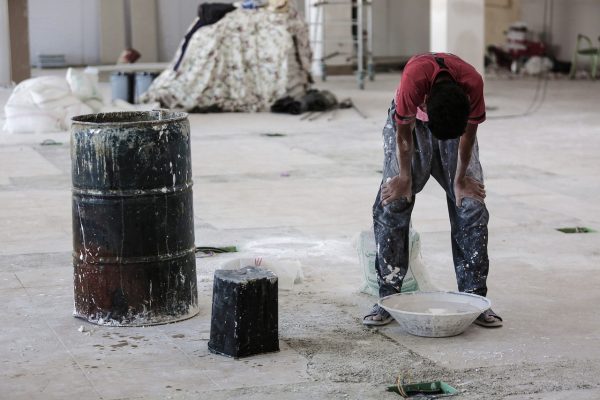Since the late Middle Ages, Jewish women have marked special occasions by reciting tekhines, personal petitionary prayers in the vernacular. The following is a tekhine for a new mother on the occasion of her son’s bris. It may be recited privately to oneself before the ceremony starts, or recited aloud as part of the ceremony itself. Those familiar with Yiddish may find it meaningful to recite the tekhine in Yiddish, the vernacular language of Ashkenazi Jewry for hundreds of years; others should recite it in English or translate it into whatever language they are most comfortable with.
Lord of the world, when the Temple
רבונו של עולם, ווען דאס בית המקדש
stood in Jerusalem,
איז געשטאנען אין ירושלים
a woman who had just risen from childbirth
האט איין יולדת בעדארפט אויפשטיינדיג
was obligated to bring a sacrifice.
. פון קינדבעט ברענגען א קרבן
Now that the Temple
, איצט, בעבור עוונותינו הרבים
is no more, one fulfills
אז דאס בית המקדש איז ניטא
this obligation with prayer
איז מען יוצא מיט
in a lesser temple.
. די תפילה אין מקדש מעט
So I come to shul to thank you, dear God,
, גיי איך אין שול דיר, ליבער גאט
and to praise you for all the lovingkindness
דאנקען און לויבן פאר אלץ וואס
that you have bestowed upon me to this day.
. דו האסט מיט מיר ביז היינט געטאן חסד
And I also ask you not to cease performing
און איך בעט דיר דאס ווייטער
your lovingkindness for me:
: זאלסטו אויך דיין חסד ניט אפּ טאן פון מיר
May […] be a beautiful sapling
פלוני זאל זיין א שיינע פלאנצונג אין
in the Jewish vineyard, for the glory of Israel.
. דעם יידישן וויינגארטן, לתפארת ישראל
May he come into the world to help
ער זאל קומען אויף דער וועלט
bring salvation and comfort to all Israel.
. צוא ישועות ונחמות אויף כלל ישראל
In his time may the Jews merit
אין זיין צייט זאלין יידן
a true redemption, amen.
. זוכה זיין א ווארע גאולה,












